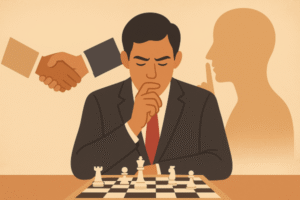What Is Chess Culture?
♟️ What Is Chess Culture?
🎯 Introduction
Chess is not just a game played on 64 squares. It is an entire universe of ideas, traditions, and respect that has evolved over centuries. When we talk about chess culture, it’s not only about knowing the rules, openings, or combinations. It’s about a way of thinking, an attitude toward the game, and respect for your opponent.

🧩 1. The Foundations of Chess Culture
Chess culture begins with a simple idea — understanding the essence of the game. A true chess player values not only victory but also the process itself. They know how to lose with dignity, respect their opponent’s effort, and treat every game as a lesson.
Chess teaches patience, self-discipline, and responsibility for one’s decisions. Every move on the board reflects the player’s character and strategic vision.
🏛️ 2. Origins and Traditions
The roots of chess culture go back to ancient times — from Indian chaturanga to modern tournaments under FIDE. Over the centuries, the game has developed etiquette, rituals, and unspoken rules.
For example:
- Greeting your opponent before the game — a symbol of respect.
- Silence during the match — a sign of concentration.
- Handshake after the game — acknowledgment of your opponent’s strength.
These traditions preserve the spirit of the game and carry its intellectual nobility.
♕ 3. Modern Chess Culture
In the digital age, chess has moved far beyond the board. Online platforms, streams, tournaments, and even memes — all have become part of the modern chess culture of the 21st century.
Today, we see a new generation rediscovering chess through Twitch and YouTube, bringing fresh life to the game. Yet even online, qualities like honesty, respect, and sportsmanship remain essential.
True chess culture means winning with dignity and losing with grace.
💡 4. Why It Matters
Chess culture shapes not only players but also personalities. It helps people:
- think more deeply;
- stay calm under pressure;
- respect the intellect and effort of others.
Those who embrace this philosophy begin to see chess not as a battle but as an art of logic and intellect.
🏁 Conclusion
Chess culture is the harmony of intellect and respect. Every match becomes a dialogue between two minds, not just a fight for points. There is no place for aggression — only the pursuit of mastery and understanding.
The deeper you explore it, the more you realize: chess is not just a game. It’s a way to live, think, and respect.